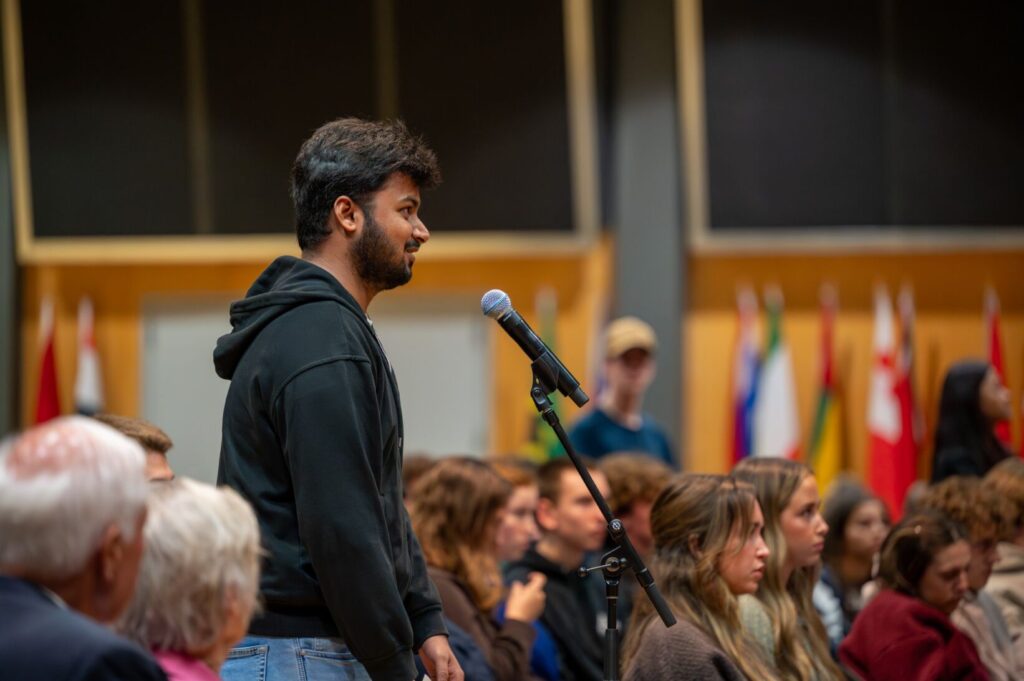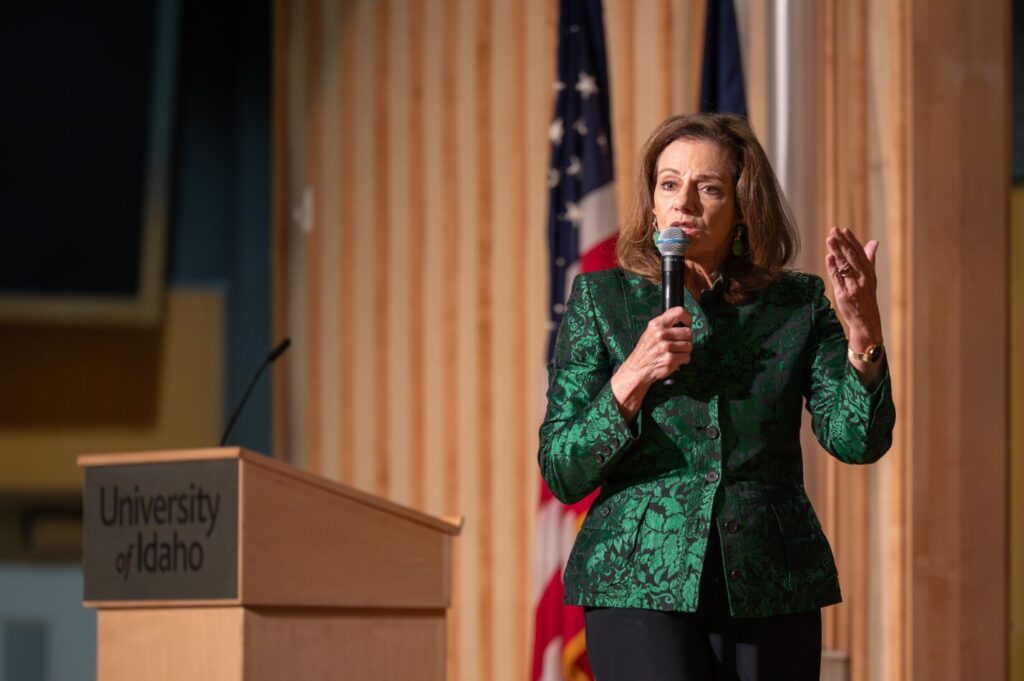Great Power Competition conference highlights energy dependence and international relations
K.T. McFarland, a former deputy national security advisor for the Trump Administration in 2017, predicted a “new Cold War” between the United States and China in the Borah Symposium keynote speech on Wednesday, Oct. 1.
“You’re seeing new alliances, old alliances frame and new alliances coming,” McFarland said. “And so, the Russians and the Chinese have sworn eternal friendship of no limits to our great alliance system.”
McFarland described the emerging conflict as a “new Cold War,” pitting authoritarian states such as China, Russia, North Korea and Iran against Western democracies. She stressed the role that energy production plays in this discord.

McFarland highlighted two U.S. advantages: energy independence through natural gas, petroleum, coal and renewables; and global leverage from being the world’s largest consumer, making other countries’ markets dependent on the U.S.
Artificial intelligence and quantum computing, which McFarland believes will be cold wars in and of themselves, will create an even greater energy demand. In 2023 alone, U.S. data centers used 4.4% of the nation’s energy, a figure expected to triple by 2028.
 UI student asks a question to Borah Symposium keynote speaker K.T. McFarland | Colton Moore | Argonaut
UI student asks a question to Borah Symposium keynote speaker K.T. McFarland | Colton Moore | Argonaut“We’re ready. We’re the best innovators and creators and technology wizzes,” she said. “But now we’re going to have the energy that other countries are not going to have.”
Quoting Italian Prime Minister Giorgia Meloni, McFarland said, “America innovates, China imitates and Europe regulates.” She used the line to argue that the U.S. can shape global events in Europe, Asia and the Middle East.
“If you think our energy needs are being met today, the future’s going to hit us fast,” McFarland said. “That’s not 10 years from now — we’re going to need more energy for artificial intelligence and quantum computing. It’s in like 12 months.”
According to Global Electricity Review 2025, China is the world’s largest consumer of electricity, using 32.6% of all electricity generated globally. The U.S. is in second place with 14.3%, while the European Union comes third at 8.8%.
In the U.S., coal-based energy production has declined by 66% since 2007 to less than 15% of the total grid, being supplemented by natural gas at 43% and clean energy at 42%, which includes wind, solar, hydroelectric and nuclear power. Electricity demand rose by 3% domestically in 2024, with natural gas meeting 36% and solar meeting 39% of this increase. These percentages include the decrease in production methods such as coal and net imports.
In China, all energy sectors are on the rise, with clean energy totaling 81% of new growth. Solar production in China was half of the new clean energy at 250 terra-watt hours, a quantity which is more than double the entire demand increase in the U.S. for 2024.
Several audience members pressed McFarland on climate change due to the emphasis on U.S. energy production in her speech. She discussed “bridge fuels,” such as nuclear power, to transition to renewables. She noted that Europe spent nearly $3 trillion on renewable energy, an expense she argued was not feasible for the United States.
An international student asked about the role of foreign students in strengthening U.S. global relations. McFarland said visa restrictions primarily targeted Chinese students, citing fears they were “expropriating our intellectual capital” and “doing the bidding of the Chinese Communist Party.” She acknowledged the U.S. has taken hits because of these restrictions but said that the problem would “fix itself.”
Nationally, more than 1.1 million international students attended U.S. postsecondary education in the 2023-24 academic year and brought in an estimated $43.8 billion to the U.S. economy. The Association of International Educators estimates up to 150,000 fewer international students arrived this fall with resulting economic loss around $7 billion.
UI saw a decrease in international student enrollment by 50% for the 2025-2026 academic year, according to statements made by President Scott Green. Census data is expected to be released in mid to late October.
McFarland also reflected on her time working closely with President Donald Trump, particularly during disputes with China over tariffs and the COVID-19 pandemic.
“I know President Trump really well — always take him seriously, don’t take him literally,” she said. “He knows that at the end of the day, that country can’t survive without trading with the United States.”
The Borah Symposium is an annual event at UI that aims to educate on and improve global peace and relations. Featuring lectures, panel discussions and community events, the symposium brings together international leaders, activists and scholars to discuss solutions to war and conflict.
The symposium is sponsored by the Borah Foundation, named in honor of Sen. William E. Borah, a leader in international cooperation and diplomacy.
The 2025 symposium centered on “Great Power Competition.” It marked the 87th year and the 78th consecutive year of the program. The symposium was held from Monday, Sept. 29-Wednesday, Oct. 1, with a total of four events.
